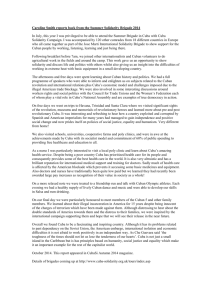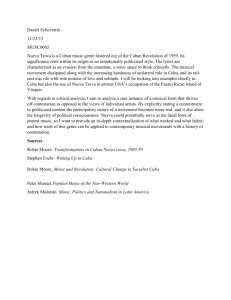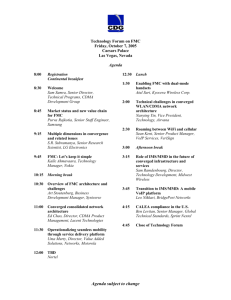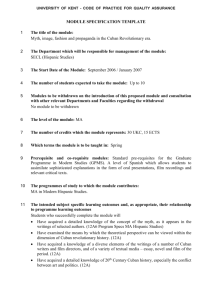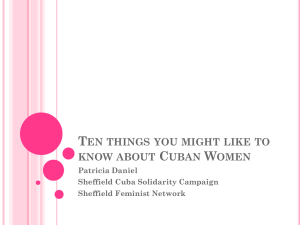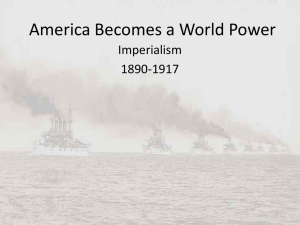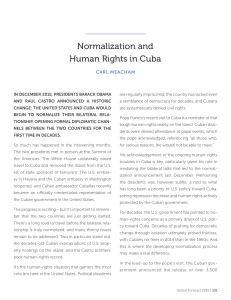federation of cuban women - US Women & Cuba Collaboration
advertisement
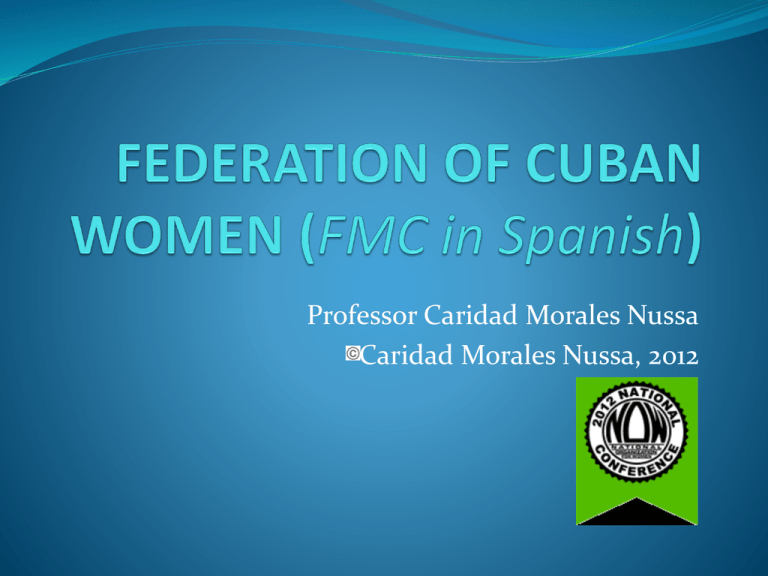
Professor Caridad Morales Nussa Caridad Morales Nussa, 2012 But when women are moved and lend help, when women, who are by nature calm and controlled, give encouragement and applause, when virtuous and knowledgeable women grace the endeavor with their sweet love, then work is invincible. Jose Marti FMC and CEDAW Cuba was the first country to sign and the second to ratify the Convention for the Elimination of all Forms of Discrimination Against Women (CEDAW). In 1997 the Council of State of the Republic of Cuba adopted a National Plan of Action to follow up on the IV World UN Conference on Women. Two National Seminars have been held and a third one is forthcoming for its appraisal. HISTORY The Federation of Cuban Women (FMC) is the national mechanism for the advancement of females, which brings together more than 4 million members (85.2%). The FMC is an NGO in Special Consultative Status with ECOSOC (UN Economic and Social Council). BEGINNINGS The FMC was established on August 23rd, 1960, by Vilma Espin, who was president until she died in 2007. GOALS Bringing women into the economy Developing communal services to alleviate domestic work and childcare Providing equal opportunities for women Providing educational, social, financial, and political capital to satisfy the particular needs of women and their families ACHIEVEMENTS The Cuban Literacy Campaign Maternity leave laws in 1974 The 1975 Family Code Strong Community Leadership Feminist Role EMPLOYMENT Women in the labor force (civil-state sector): 46.7% Unemployment rate: 1.9% Women represent the: 65.6% of all professional and technicians in the country. 72% of the labor force in the Educational sector 70% of the labor force in the health sector 63.8% of General Doctors in the country 51.6% of all researchers 75.2% of Social Workers 27% of self-employed workers HEALTH Infant mortality rate: 4.9 x 1000 live births (1st place in the Americas) (Dec 2010) Coverage by the Family Doctor and Nurses: 99.1% Attention to pregnant women: 99.9% of the births take place at medical institutions. Coverage of vaccination programs: 99.5% of children are protected against 13 illnesses. Life expectancy: General......... 78 Women.......... 80.2 Men......... …….76 Prevalence of HIV/AIDS in women 15-49 years old: 0.1%. EDUCATION University women’s enrollment: 63% Women are: 65.8 % of all University graduates 45.7% of all technical and professional graduates 40 % of students of scientific and technical fields. 53.4% of all Higher Education professors POLITICS Women in Parliament 45 % Women in leading positions: 40.2% Women Ministries: 9 (32%) Women Vice Ministries: 42 (35.6%) Women members of the Council of the State 12 (40%) One woman Vice President of the State Council, the General Controller of the country SCIENCE and LAW 48 of 200 scientific research centers that exist in the country are headed by women that represent: 24% 73.7% of all attorneys of the country 71.4% of Provincial Presidents of the Courts 71.3% of the professional judges of the country 47% of the judges in the Supreme Court. 2012 Women are guaranteed the exercise of their sexual and reproductive rights, including free and responsible choice. Abortion in Cuba is a free health service. Women and men enjoy the necessary services for family planning. Cuban women enjoy the right to vote since 1934. With respect to women in parliamentary positions, Cuba occupies one of the first places in the world. FMC and NOW The Federation of Cuban Women maintains historical links with the NOW Organization. NOW has carried out arduous and recognized work in favor of peace, freedom and solidarity between peoples and their women, and in particular for US Women’s Rights FMC Contact Info Calle Paseo No. 260 e/ 11 y 13, Vedado 1400, Plaza, Ciudad Habana Telephone: (537) 838-2763 / 838-2772 Email: fmc@enet.cu presidenciafmc@e net.cu Professor Caridad Morales Nussa ESL and Spanish Adjunct Professor cnussa@towson.edu Cuban consultant for US Women and Cuba Collaboration www.womenandcuba.org WORKS CITED http://www.ecured.cu/index.php/Federaci%C3%B3n_de_Mujeres_Cubanas http://womenandcuba.org/webcuba.htm United Nations Development Program. Human Development Reports: Cuba. 9 March, 2008. http://hdrstats.undp.org/countries/data_sheets/cty_ds_CUB.html Whiteford, L. “Local Identity, Globalization, and Health in Cuba and the Dominican Republic.” Global Health, local realities: The Fallacy of the Level Playing Field. Ed. Linda M. Whiteford and Lenore Manderson. Boulder, CL: Lynne Rienner Publishers, 2000. Bunck, J. “Women’s Rights and the Cuban Revolution.” Cuban Communism, 9th ed. Ed. Irving Louis Horowitz and Jaime Suchlicki. New Brunswick, NJ: Transaction Publishers, 1998. Women in Latin America; Cuba: Daughters of Fidel. Films in Humanities and Sciences.
